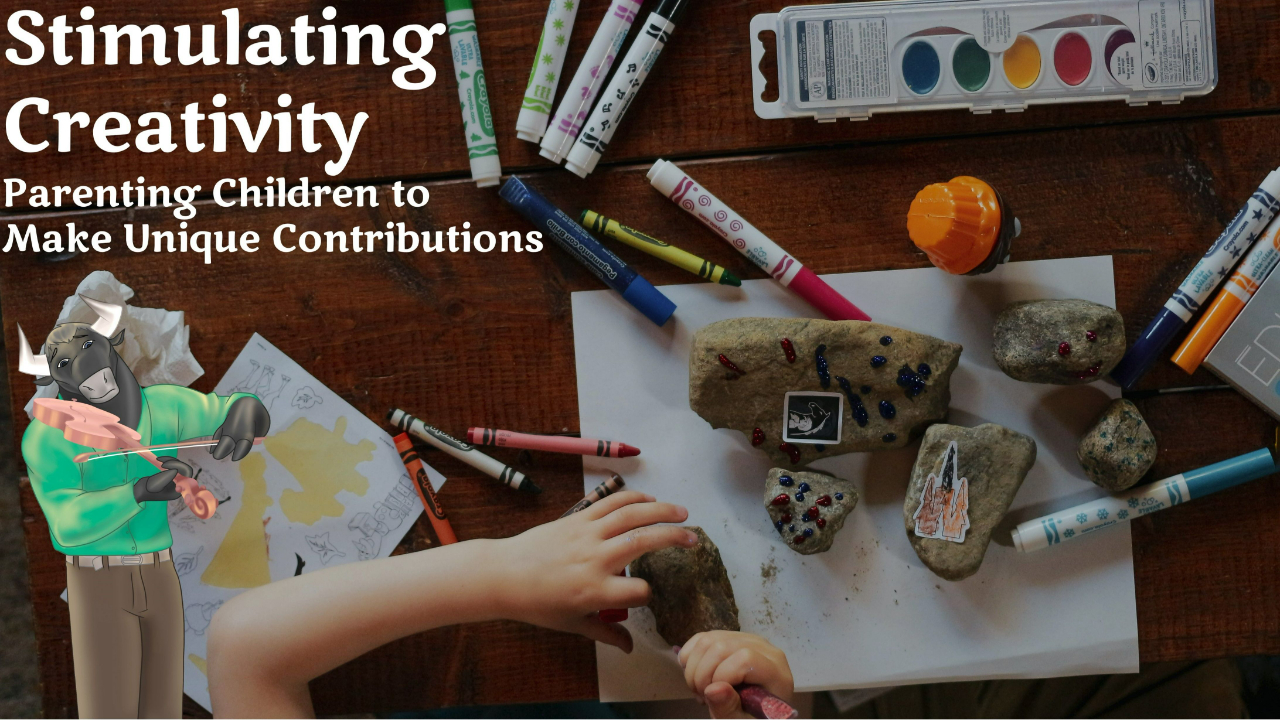
For parents, creativity is about much more than just arts and crafts. It’s about approaching the everyday challenges of parenting with a fresh mindset, a light and playful heart, and an enthusiastic spirit. All parents have to deal with some degree of repetition, and repeatedly investing time and making sacrifices in order to raise children well can, over time, become tiring. Guarding against that outcome – and instead finding an inspiring sense of victory through the process of taking on those very challenges – can be supported through purposeful creativity. What experiences do you create for yourself and your children? How can you do so more effectively? Read on for additional thoughts on these and other topics related to creativity as a parent.
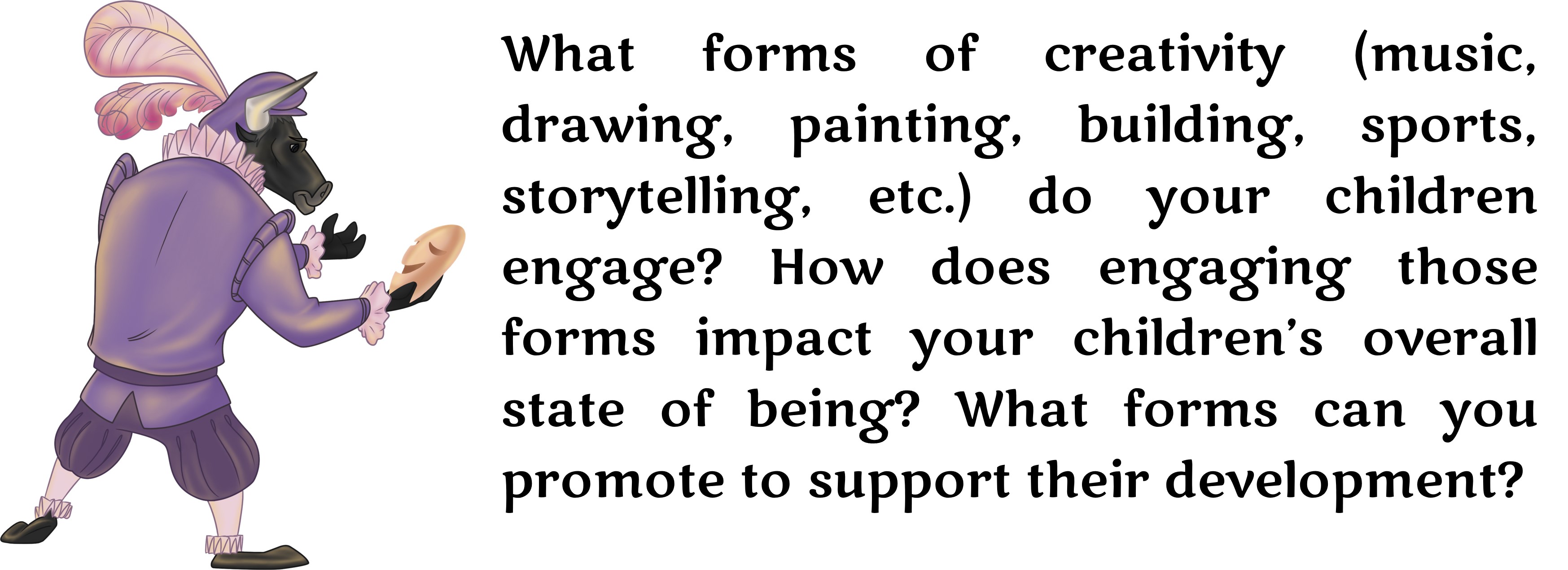
Why Creativity?
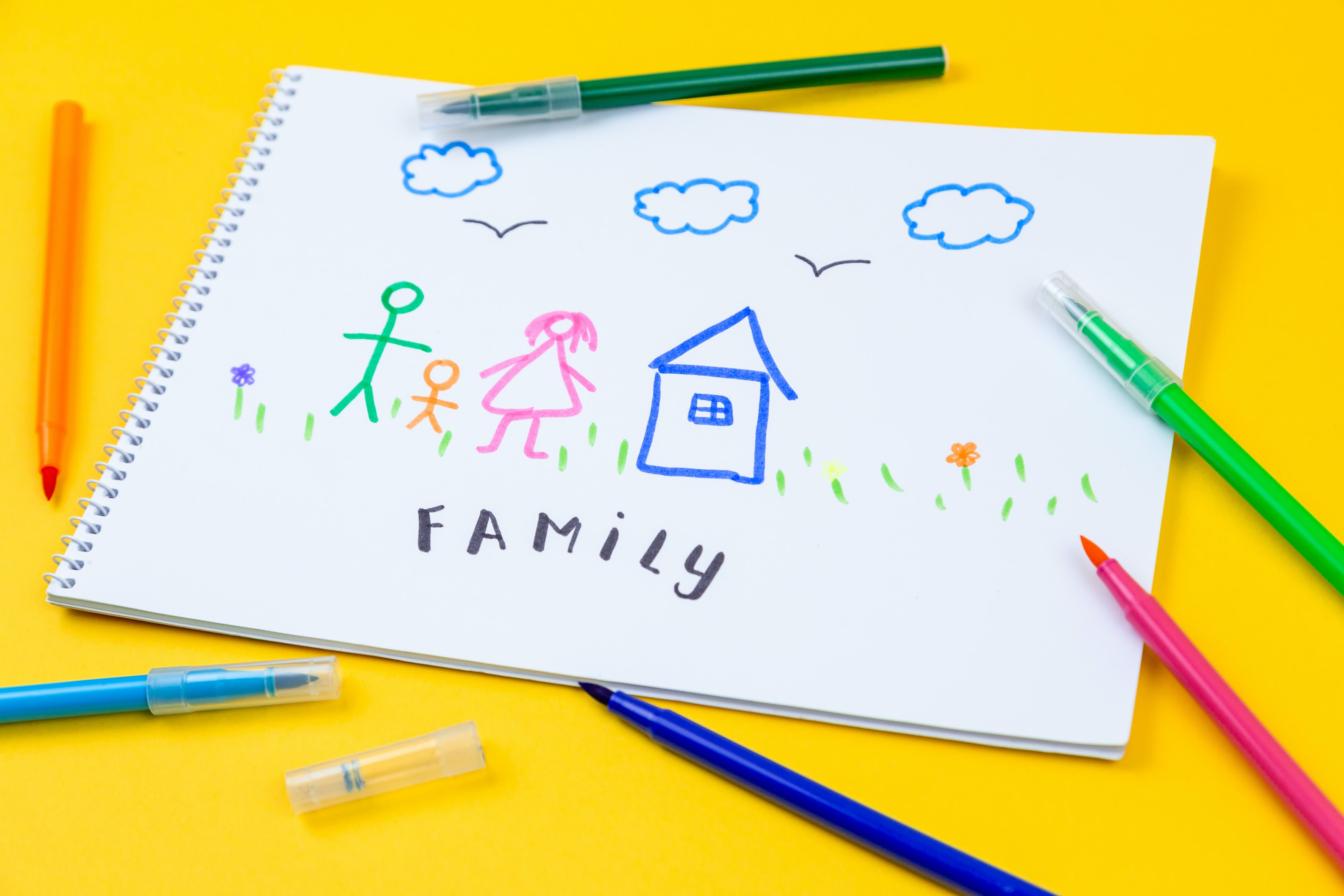
Parents who promote creativity, both in their own experiences and for their children, are less likely to get “stuck” in patterns of behavior that are dissatisfying. In short, when things aren’t going well, they have the ability to use their creativity to shift the situation in a favorable manner. This can happen in many forms; three such forms are adaptability in moving past obstacles, envisioning of future situations and states of being that are valuable and beneficial, and producing such powerful good vibes internally and externally that life is regularly experienced at a very high quality.
Adapting to Move Past Obstacles
Experienced parents understand that it can be helpful to expect the unexpected when it comes to their children. New challenges will arise, old challenges will reappear with new wrinkles, and parents will constantly be asked to consider different sets of circumstances and desired outcomes before deciding how to respond.
Embracing creativity makes this process easier, as parents who are less “rigid” can approach problems with more flexibility and open-mindedness. By considering multiple perspectives and potential solutions, creative parents can position themselves to better adapt their parenting strategies and influence situations efficiently and effectively.
Consider a parent who is struggling to get a child to eat vegetables. The “rigid” way to approach such a situation would be to be strict, to threaten punishment, and so on. All of these strategies can be beneficial if used properly and with the right timing, so this is not a condemnation of them. However, parents can also find benefit from using “carrots” in addition to “sticks,” in particular by introducing creative incentives (e.g., competitions, scoring systems, role-playing) that engage children to a higher degree and invite them to actively participate in their health and well-being.
Similarly, parents who are struggling to connect with their children can lean on creative solutions to promote more open communication. While learning about specific strategies is always helpful, developing one’s own ability to gauge a situation, generate an in-the-moment option that can address the issues that are present, and demonstrate the courage to do so (even when it feels uncomfortable) can empower parents to become more resilient and resourceful.
Fostering Beneficial Imagination
Supporting children to develop their imagination and to apply it well is critical for enabling personal growth and development. Parents can do this in many ways: encouraging free play (e.g., using toys in a novel manner, inventing fictional stories that call out key lessons), reading books (providing exposure to new concepts and relationships), or painting / drawing / building (especially if the parent undertakes the activity with deep enthusiasm that sparks the children’s interest). It can also be beneficial to schedule unstructured time into the day during which children can choose to take on whatever activity inspires them most.
The benefits of fostering imagination in children are numerous. Children who have a strong imagination are better able to problem-solve and express themselves. They also tend to have better social skills, as they are more able to empathize with others and understand different perspectives. In addition, fostering imagination can lead to a lifelong love of learning and a sense of curiosity about the broader world.
Generating Joy
Fulfilling parental responsibilities requires regularly dealing with stress and exhaustion, and injecting creativity into the day-to-day grind is an excellent way to reinvigorate one’s parenting experience. One way to illustrate how this can work is to consider the concept of “seeing the world through a child’s eyes.” Parents are generally practical people focused on getting things done in the real world – this is a very helpful trait, but it can also cause a decline in the overall sense of “wonder.” When days are seen as repetitive and the magic that underlies existence goes unacknowledged, liveliness can start to fade to lifelessness. Parents who proactively remind themselves to take a step back, connect with their heart, and feel a degree of awe and reverence for the mystery of being alive and the opportunity to raise their children in that space can find themselves re-energized to take on the challenges that come.
Parents can also generate joy by evolving their focus to be as much on processes as it is on outcomes. For good reason, most parents direct their attention towards the items that they need to check off of their to-do lists; however, it can be easy to become unbalanced while engaged in such pursuits. When parents permit themselves to be joyful only when everything is “done,” they artificially limit their happiness. The alternative – seeing life as an adventure, purposefully taking time to enjoy the obstacles along the way – can give parents room to breathe and be more present with, and grateful for, the experiences they are having.

Stimulating Creativity for Your Children

There is no limit to the number of ways parents can engage their children creatively. However, what follows is a short list of thought starters intended to help parents get the creative juices flowing and explore energizing possibilities.
Invent New Games
- Look for ways to repurpose everyday objects like cardboard boxes, pillows, kitchen utensils, furniture, clothes, and so on to construct entertaining activities or challenges.
- Let your children take the lead in making up games that you and the rest of the family can play. Whatever your children suggest, follow their cues, and provide support and encouragement for their ideas.
- Rather than playing traditional games (board games, charades, etc.) with their pre-defined rules, try playing with open-ended rules that encourage children to use their imagination and come up with creative variations. Have fun being silly and calling forth similar silliness in your children.
Train the Art of Storytelling
- Share your own personal stories with your children. This can help them see you in a different light, as someone who has gone through many of the same challenges that they are going through. Whether your stories are from your childhood, your family’s history, or about the obstacles you’ve overcome, tell them in ways that help your children realize their own power to process their life experiences in ways that are supportive.
- Use props and visuals to make your everyday stories more engaging and interactive. Choose household items, pictures from the past, and other creative devices to bring your most entertaining stories to life.
- Ask open-ended questions so that your children can develop their awareness of how they are prone to view situations. In relation to books, movies, tv shows, games, and more, ask questions such as "What do you think will happen next?" and "How do you think the character is feeling?" Then, encourage your children to engage in some degree of introspection in relation to why they chose that certain response.
Explore New Places and Ideas
- Provide opportunities for your children to watch documentaries, attend after-school activities, and participate in weekend workshops that develop new skills and knowledge. This can be especially beneficial if those experiences support your children to develop an appreciation for different cultures.
- Allow your children to make their own decisions and to take risks. This can help them to develop a sense of independence and self-confidence. Parents can give their children the freedom to make their own choices, but at the same time support them to understand the consequences that they will face. This helps children learn to act in alignment with their true best interest.
- Role model a sense of curiosity and openness to new experiences. Test yourself by ordering new dishes at restaurants, attending new events (e.g., concerts, parades, sports competitions, service-oriented activities), and expressing yourself in new ways (e.g., being silly, getting healthier and stronger).

Creativity Leads to Contribution
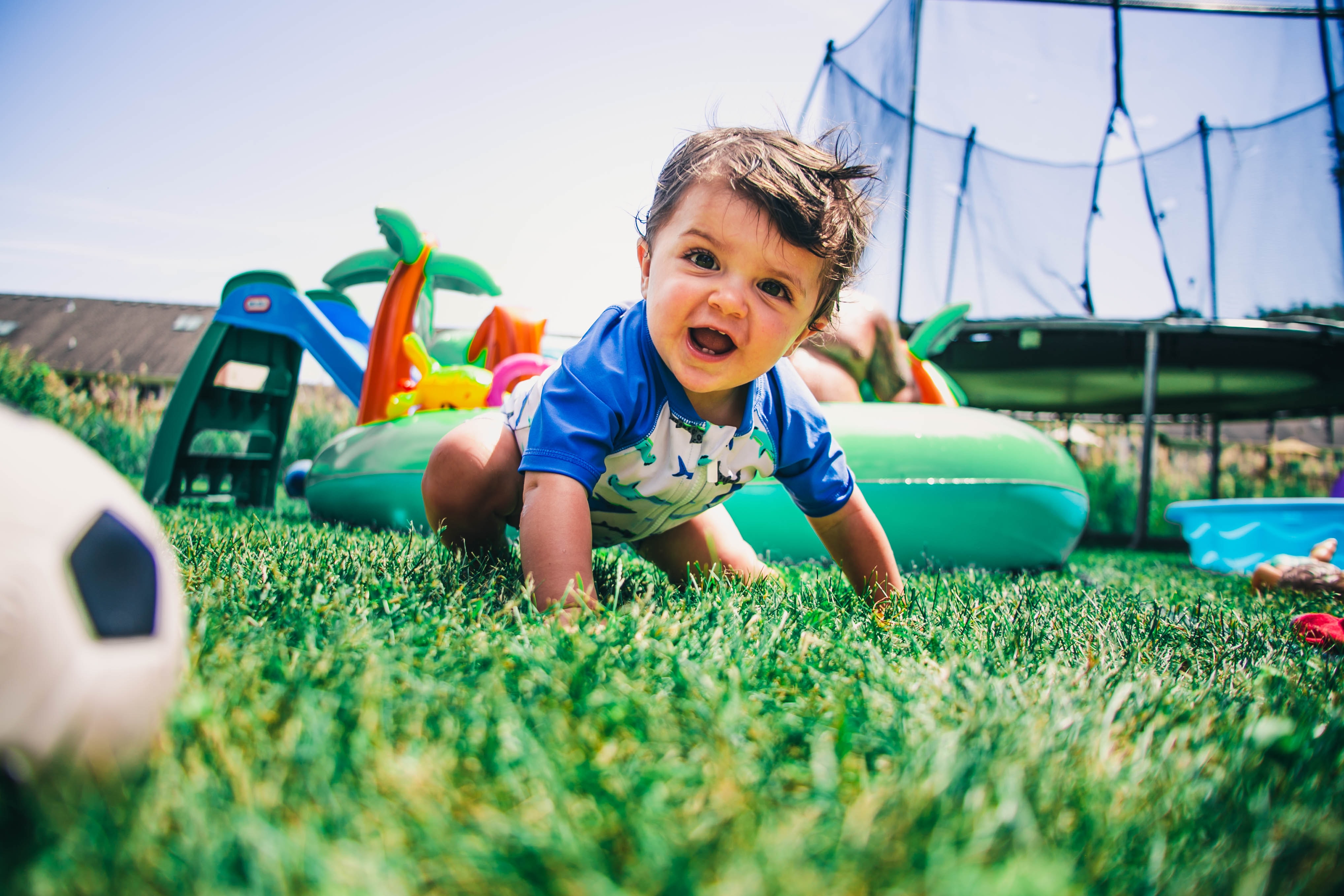
Regurgitating, re-aggregating, and/or refining “old” information – that which is already available and well understood – will have little benefit in the future, as artificial intelligence will come to dominate this area of functionality. Today’s children will eventually find themselves in an increasingly advanced technological society, but one area in which they will always have an ability to make contributions is through harnessing their own creativity and using it to offer something “new” to the world.
Adding to the Knowledge Base
As artificial intelligence continues to progress, it is expected that many traditional jobs will become automated. This means that the ability to think creatively, solve problems, and collaborate effectively will become even more valuable in the workforce of the future.
While AIs will be able to process data and perform routine tasks, they are likely to face some challenges in creating things that are wholly new. In general, their “creations” will be based on extensions of existing knowledge rather than the bursts of insight that are available to humans. Children who are able to connect with themselves at a deeper level will be able to add greater value by bringing forth whatever it is that life uniquely provides for them.
Moreover, as the nature of work changes, problem-solving skills will become increasingly valuable. Essentially, AIs will be able to perform all the mundane work at a much faster pace. People will no longer need to act like robots, completing rote and repetitive tasks. Where humans will add value is by taking entirely new perspectives on existing businesses and processes and promoting beneficial innovation.
Communicating with Greater Impact
Children who are able to express aspects of themselves that are deeper than the series of “word relationships” that exist in their minds will unlock deeper levels of connection with, and influence on, other people. In other words, they will be able to share levels of their humanity that are more likely to “move” others and motivate them to take action.
Additionally, they will be able to receive more of what life and others share with them, which will allow them to respond more effectively to whatever feedback is provided. This can lead to more fulfilling and productive relationships, and it can also lead to greater versatility in communication styles, which allows children to adjust how they relay their messages in order to better fit the needs of different audiences.
Achieving Higher Levels of Inspiration and Satisfaction
When children are able to live more creatively, they can play a greater role in shaping their future. In some sense, through their choices, they can “create” aspects of their experience, and they can own their ability to do so in ways that are supportive. This allows them to live with purpose, to take on bigger challenges that are meaningful to them and to the world, and to generally feel more alive. Life itself is creative, so the more that children can get to know that process as it shows up inside of them, the more peace they can find in embracing all that is present for them.

Conclusion
Parents who aim to stimulate creativity, both in their own lives and in the lives of their children, can promote adaptability, foster beneficial imagination, and generate joy in their families. This can be done by inventing new games, training the art of storytelling, and continually exploring new experiences. Children who develop their creative skills will be better positioned to make contributions in the future, when advances in technology, and artificial intelligence in particular, are likely to increase the emphasis placed on, and value attributed to, unique insights and perspectives.
Related Aim & Conquer Social Media Awareness Prompts

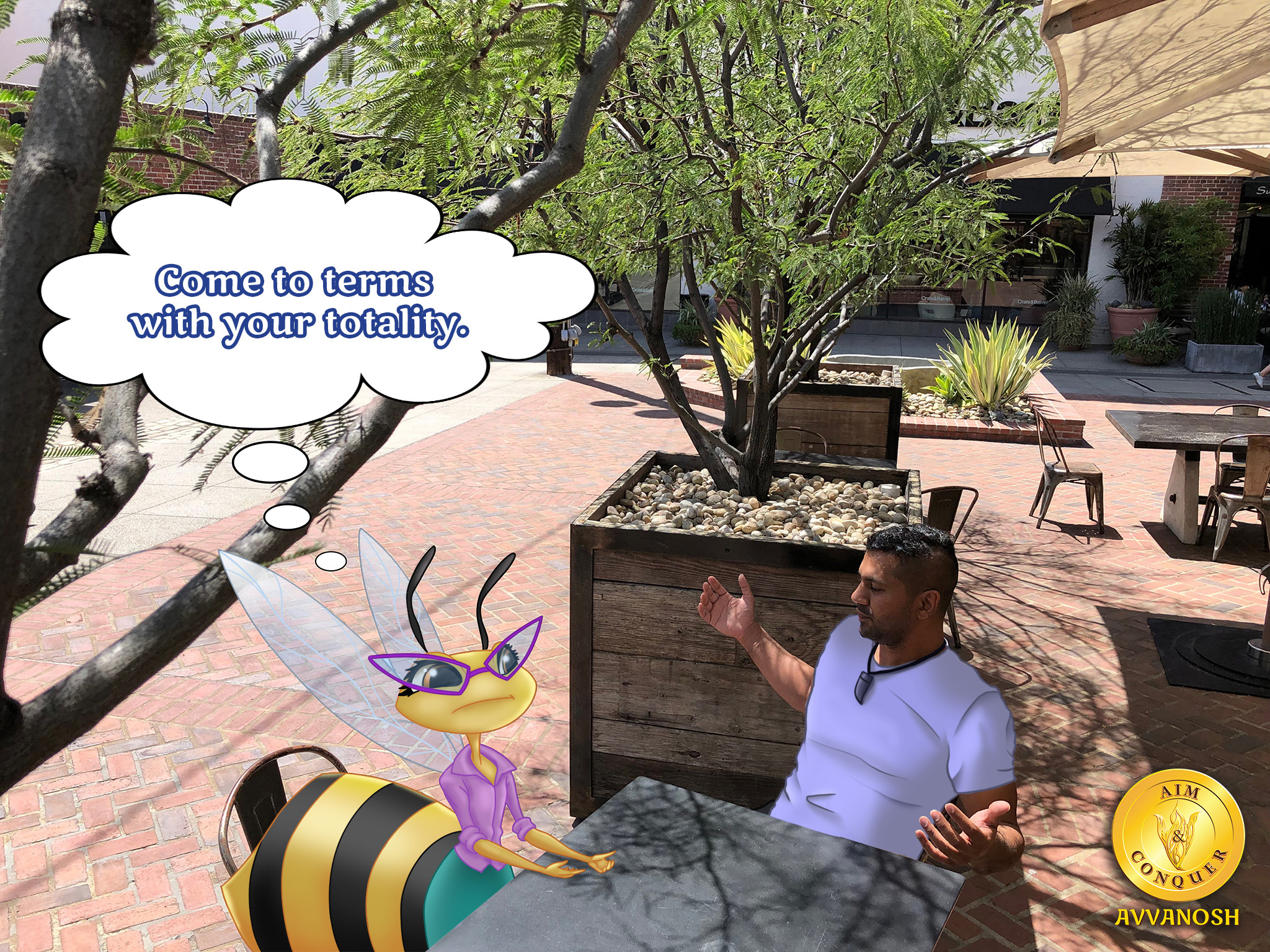

Are you interested in learning more about ways to manage the stress you and your team experience at work? Click below to sign up for Aim & Conquer's newsletter and to receive a free reflection on "healing in-tensions" that can support efforts to reduce stress.

